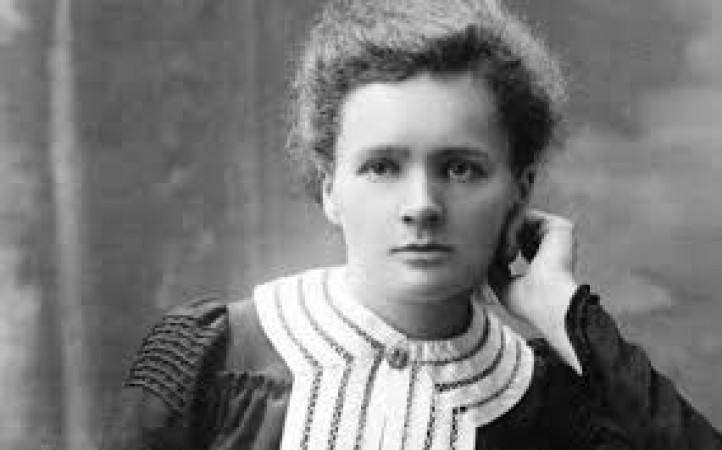
Marie Curie, a remarkable scientist and an inspirational figure, made groundbreaking contributions to the fields of physics and chemistry. As the first woman to ever win a Nobel Prize, she defied societal norms and paved the way for future generations of women in science. This article delves into the life, accomplishments, and enduring legacy of Marie Curie.
1. Early Life and Education: Marie Curie, born Maria Salomea Skodowska, entered the world on November 7, 1867, in Warsaw, Poland. Despite facing significant obstacles as a woman in academia, she pursued her passion for science relentlessly. Marie's thirst for knowledge led her to enroll at the University of Paris, where she excelled in physics and mathematics.
2. Scientific Collaboration with Pierre Curie: In 1894, Marie met Pierre Curie, a prominent physicist. The couple formed an intellectual and personal bond that would drive their scientific endeavors. They got married in 1895 and embarked on a lifelong partnership in research.
3. Discovering Radioactivity: A Transformative Breakthrough: Marie and Pierre Curie conducted extensive studies on uranium, which led them to discover the phenomenon of radioactivity. Their groundbreaking research challenged existing scientific paradigms and opened up new avenues for exploration.
4. Isolation of Radium and Polonium: Through meticulous and painstaking work, Marie Curie managed to isolate two new elements: radium and polonium. These discoveries solidified her reputation as a brilliant scientist and positioned her at the forefront of scientific innovation.
5. The First Nobel Prize in Physics: In 1903, Marie Curie became the first woman to receive a Nobel Prize. She was jointly awarded the Nobel Prize in Physics alongside Pierre Curie and Henri Becquerel for their research on radioactivity. This recognition brought international acclaim to Marie's groundbreaking work.
6. Tragic Loss and Continued Research: Tragedy struck in 1906 when Pierre Curie died in a tragic accident. Despite her profound grief, Marie continued her scientific pursuits, taking up her late husband's position as a professor at the University of Paris.
7. The Second Nobel Prize in Chemistry: In 1911, Marie Curie received her second Nobel Prize, this time in Chemistry. The award recognized her pioneering research on radium and polonium and her exceptional contributions to the understanding of radioactive elements.
8. Marie Curie's Contributions to World War I: During World War I, Marie Curie recognized the importance of applying her scientific knowledge to help the war effort. She established mobile radiography units, which came to be known as "Little Curies," to provide X-rays for medical purposes and aid in the diagnosis and treatment of wounded soldiers.
9. The Legacy of Marie Curie: Marie Curie's legacy extends far beyond her scientific achievements. Her unwavering determination, groundbreaking discoveries, and commitment to excellence continue to inspire countless individuals, particularly women, to pursue careers in science.
10. Marie Curie's Impact on Women in Science: Marie Curie's achievements shattered gender barriers and transformed societal perceptions of women's capabilities in the scientific realm. She serves as an enduring symbol of empowerment and an advocate for equal opportunities in scientific fields.
11. Controversy and Ethics of Radiation Research: The extensive research conducted by Marie Curie and her contemporaries on radioactivity raised important ethical questions regarding the safe handling and potential dangers of radiation. The subsequent advancements in radiation protection and safety standards owe a debt to their pioneering work.
12. The Curie Family's Contributions to Science: Marie Curie's legacy transcends her own achievements. Her daughter, Irène Joliot-Curie, also won a Nobel Prize in Chemistry, making them the first mother-daughter duo to receive Nobel Prizes. The Curie family's impact on scientific progress continues to be felt to this day.
13. Honors and Recognition: Marie Curie's groundbreaking work garnered widespread recognition and numerous prestigious awards, solidifying her place in scientific history. Her contributions continue to be celebrated through various scientific honors, including the Curie Institute in Paris and the Curie Cancer Center.
14. Marie Curie's Personal Life and Marriage: Beyond her scientific pursuits, Marie Curie experienced the joys and challenges of family life. Her marriage to Pierre Curie and the birth of their two daughters brought her happiness, but they also presented the additional responsibility of balancing her personal and professional aspirations.
15. Conclusion: Marie Curie's indomitable spirit, brilliant mind, and groundbreaking research have left an indelible mark on the scientific community and society as a whole. Her pursuit of knowledge and her determination to break through gender barriers continue to inspire generations. Marie Curie's legacy serves as a testament to the power of passion and dedication and the boundless potential of human achievement.
Girish Sharma Reigns as Two-Time Champion of Asia's Best Wedding Anchor at Wow Awards Asia 2023